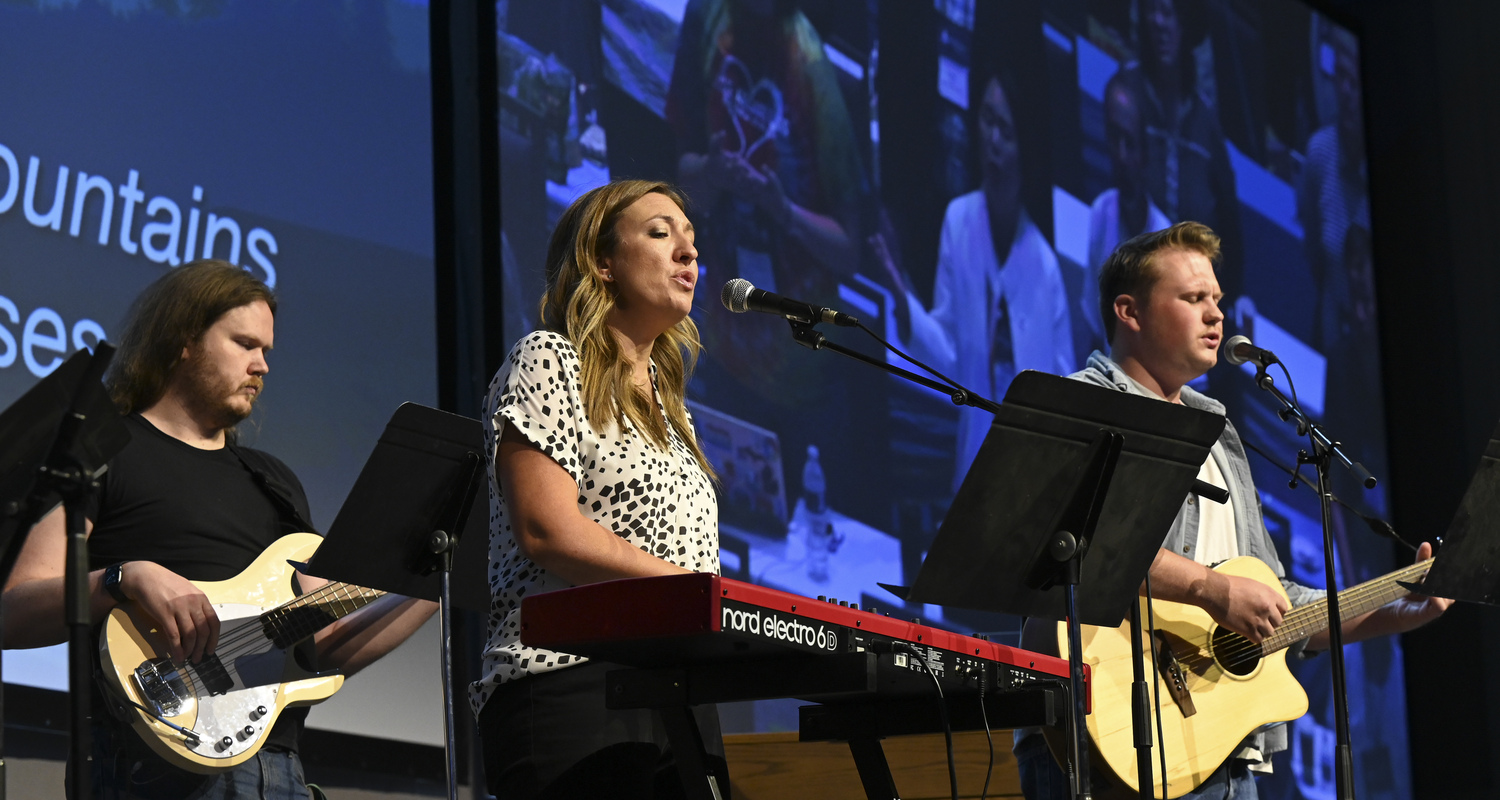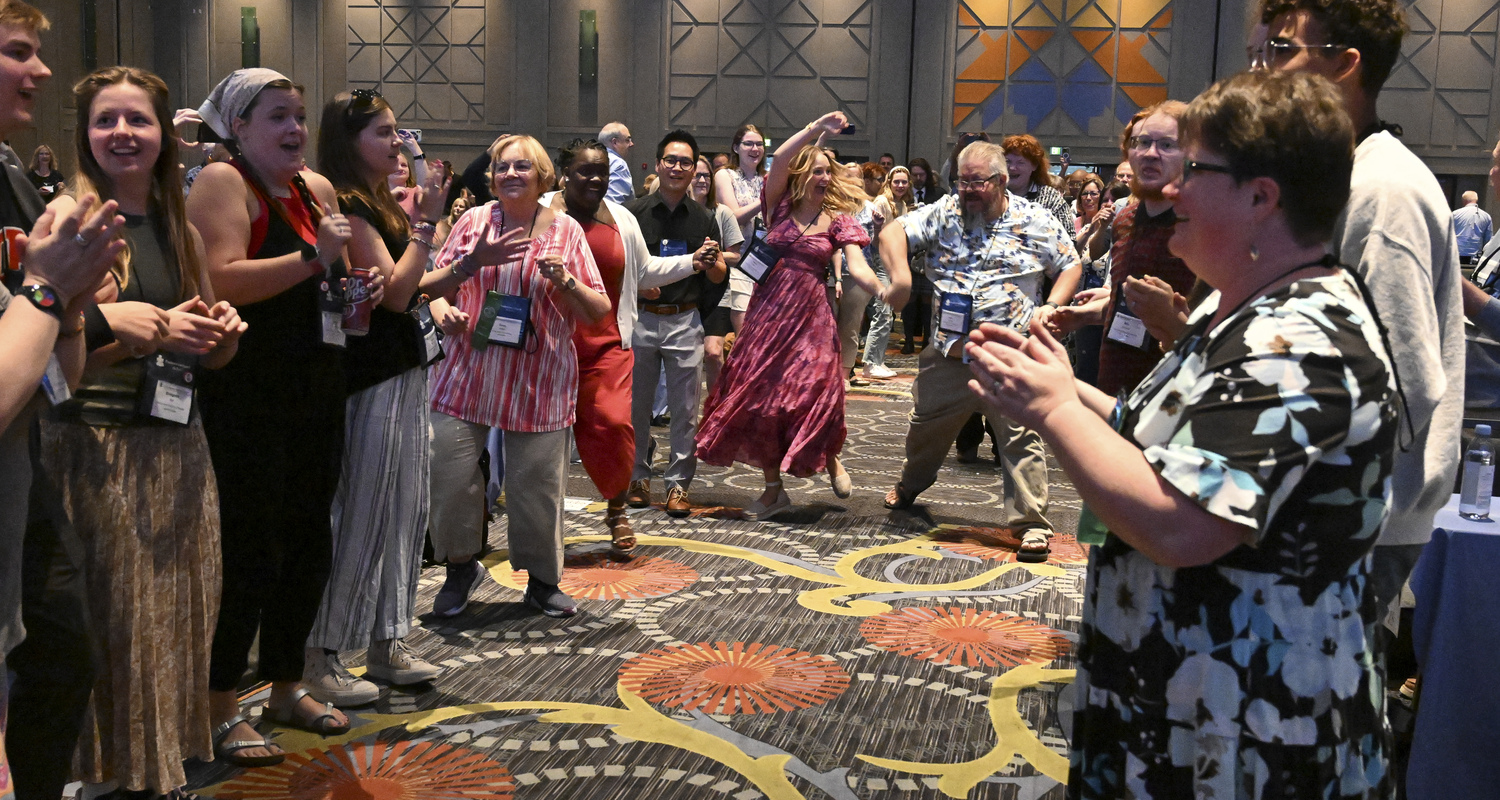.jpg)
Morning Worship July 3, 2024 at GA226 was led by Rev. Ruth T. West, Associate Dean at San Francisco Theological Seminary. Photo by Rich Copley
Morning worship on Wednesday at the 226th General Assembly focused on how greed affects our capacity to embody hope. Associate dean for the Graduate School of Theology, University of the Redlands, the Rev. Ruth T. West, took her inspiration from the assembly theme’s “Live into Hope” and the similarly titled hymn’s (Glory to God, #772) verse: “Live into hope of captors freed of sight regained, the end of greed.”
West’s sermon, titled “Fearless Insight,” considered John 9:35-41 and the story of the man whose sight Jesus restored that precedes it. West called it “audacious” and “auspicious” that she was asked to preach at General Assembly on the topics of greed, power, and clear-sighted hope. As a “racially ambiguous” single mother who was born of a Japanese immigrant mother and an African American father in the American South when biracial marriage was illegal, West says her identities “have little to no value” according to capitalism. She marveled, “I’ve been invited to preach about the end of greed at the end of the Fourth of July in Utah in a critical election year!”

Gathering music and hymns during the July 3 service of worship was guided Mount Olympus Presbyterian Church musicians. Photo by Rich Copley
“I want us to be curious about how we treat greed, complicity, and where hope fits,” said West, before defining greed. “Greed is an excessive desire for more,” said West, naming what we desire — money, possessions, power, presence, and access to resources. Greed is synonymous with “selfishness, indulgence, longing, craving, covetousness,” said West before empathizing the ways that “we tend not to want to see ourselves in a negative light.”
West invited those gathered to think past the obvious associations with big business, corporate power, and politics and to look at the ways greed operates in a system that “capitalizes on the term ‘volunteer’ or feels a responsibility to save money by paying some people less for the same work because of their gender or because they come with a working spouse.” West described the ways that greed acts as gatekeeper, complicates equitable access to resources, dominates the conversation and privileges certain qualifications.

After the blessing and charge, Assembly participants danced during the breaktime leading up to the first of 3 plenary meetings schedule for July 3, 2024. Photo by Rich Copley
“Greed is an insatiable desire for power and control molding the truth in its own image,” said West. She described the Pharisees in the passage as having “excessive” power and influence which they exercised when they bullied the parents of the man who was blind and whose sight was restored by Jesus before throwing him out. West noted that “ορατό,” the Greek word for the man’s restored sight means “to be acquainted with by experience,” and describes in this context, a spiritual awareness through divine encounter. By contrast, the sight of the Pharisees comes from a different verb meaning merely “to observe.”
According to West, we need to do more than simply see but to be self-convicting. She invited commissioners to ask themselves why they were here and doing the work. She asked them to consider in what ways they have been complicit or silenced or silencing to others, especially when money and influence were on the table.
West proposed that when sight is truly restored, hopeful action follows.
“Hope is the fierce insight you gain when you have seen Jesus and you believe,” said West. “The hope piece may be the scariest part of all, because the hope is you.”
